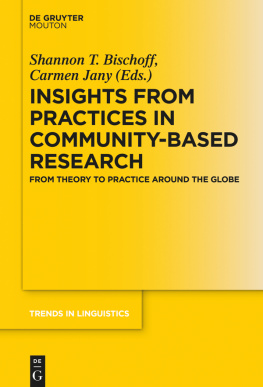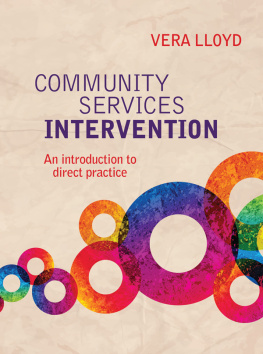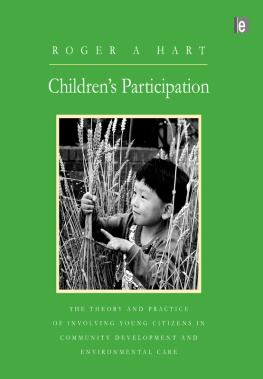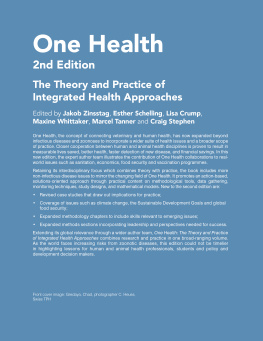COSTING COMMUNITY CARE:
THEORY AND PRACTICE
First published 1993 by Ashgate Publishing
Reissued 2018 by Routledge
2 Park Square, Milton Park, Abingdon, Oxon, OX14 4RN
711 Third Avenue, New York, NY 10017, USA
Routledge is an imprint of the Taylor & Francis Group, an informa business
Copyright Crown copyright 1993
All rights reserved. No part of this book may be reprinted or reproduced or utilised in any form or by any electronic, mechanical, or other means, now known or hereafter invented, including photocopying and recording, or in any information storage or retrieval system, without permission in writing from the publishers.
Notice:
Product or corporate names may be trademarks or registered trademarks, and are used only for identification and explanation without intent to infringe.
Publishers Note
The publisher has gone to great lengths to ensure the quality of this reprint but points out that some imperfections in the original copies may be apparent.
Disclaimer
The publisher has made every effort to trace copyright holders and welcomes correspondence from those they have been unable to contact.
A Library of Congress record exists under LC control number: 93016351
Typeset at the PSSRU, University of Kent at Canterbury
ISBN 13: 978-1-138-61209-9 (hbk)
ISBN 13: 978-0-429-46353-2 (ebk)
This volume of essays grew from a series of workshops held in the Personal Social Services Research Unit so there are very few members of the Unit who have not contributed in one way or another. Particular contributions are acknowledged at the end of individual chapters. Our special thanks, however, must go to members of the Directorate (particularly Martin Knapp) for their cooperation and encouragement throughout the last year. All authors deserve a grateful mention for working so hard and for meeting our tight deadlines: Caroline Allen, Andrew Bebbington, David Challis, John Chesterman, Bleddyn Davies, Catherine Drury, Andrew Fenyo, Eriko Gould, Aiden Kelly, Martin Knapp, Paul McCrone, and Karen Traske. In addition, we would like to thank Charlotte Salter for her comments on early draft chapters, Deborah Sillifant for her organisational and secretarial support, Nick Brawn for the beautiful diagrams, and last but not least Jane Dennett for undertaking the desk-top publishing and providing invaluable advice and support.
Ann Netten and Jennifer Beecham August 1992
Caroline Allen, Junior Research Fellow, Institute of Social and Economic Research, University of West Indies, Barbados, formerly Research Associate, PSSRU.
Andrew Bebbington, Assistant Director, PSSRU.
Jennifer Beecham, Research Fellow, PSSRU.
David Challis, Assistant Director, PSSRU and Reader in Social Work and Social Care.
John Chesterman, Research Fellow, PSSRU.
Bleddyn Davies, Director, PSSRU and Professor of Social Policy.
Catherine Drury, Senior Practitioner, Medway/Swale Aftercare Project, Royal Philanthropic Society, formerly Research Associate, PSSRU.
Andrew Fenyo, Research Officer, PSSRU.
Eriko Gould, Research Associate, PSSRU.
Aidan Kelly, Senior Research Fellow, PSSRU.
Martin Knapp, Deputy Director, PSSRU and Professor of the Economics of Social Care.
Paul McCrone, Research Associate, PSSRU.
Ann Netten, Research Fellow, PSSRU.
Karen Traske, Research Associate, PSSRU.
The publication of this book is extremely timely. Personal social services are undergoing the most radical changes for more than a generation. The Governments community care reforms, heralded by its White Papers and by the National Health Service and Community Care Act 1990, present local authorities with formidable challenges. Under the new approach to service planning and delivery, maximising the delivery of care within available resources will require not only different kinds of cost information but greater skill in cost analysis. Local government managers, and indeed central government administrators, seeking a better understanding of what cost information will be required, how it can be generated and how it can be applied to important issues of policy and practice need look no further than this book.
In the social services area the collection and analysis of cost information has too often been seen as at best a necessary chore and at worst a threat to sensible care policies. Cost analysis has been something that can be left to backroom or ivory tower accountants, statisticians and economists. This attitude always was bad management. If it were continued in the new internal market it would be a recipe for short-changing clients, staff and the taxpayer. Appropriate cost information and analysis is simply too central to good policy-making and practice to be left only to specialists. A recurring theme of the essays in this book is that cost analysis does not make decisions but it can make decisions better informed. Put bluntly, policy-makers and managers who do not insist on good cost analysis, or do not use it when it is provided, will make more bad decisions than they should.
All social service managers should aim to be smart consumers of cost information. This does not mean that they have to become cost experts. It does mean that they should have a good grasp of the uses of cost information and should have sufficient understanding of the basic principles of costing to be able to distinguish between good and poor cost analyses. The value of this book is that it brings together a clear exposition of the basic principles of costing, practical guidance on how to carry out costings, and illustrations of the application of cost information in tackling important social care problems. The advice and illustrations are based on extensive hands-on experience: the Personal Social Services Research Unit at the University of Kent has unique expertise in producing comprehensive costings of community care and comparing costs with outcomes.
I recommend this book to personal social service policy-makers, managers and planners throughout local government and to their peers in the Department of Health. For all those concerned with maximising client welfare it should prove a cost-effective purchase!
Clive H. Smee
Chief Economic Adviser, Department of Health
September 1992
Martin Knapp, Ann Netten and Jennifer Beecham
Cost information of some sort has long been available to policy-makers. For many years, local authority accountants and treasurers have been guided by their own codes of professional excellence, and their professional association, the Chartered Institute of Public Finance and Accountancy (CIPFA), has published standardised local authority accounts. Until relatively recently, it seemed as if these accounts were annually pored over by treasurers but annually ignored by all but the most senior or diligent of social services employees. Cost information has long been available, but little used.
For traditional (top-down, supply-led, single-agency) public expenditure planning, the cost information contained in agency accounts was probably adequate in design and quantity to satisfy most needs. However, the systems and incentives promoted by the









